Solar Waste
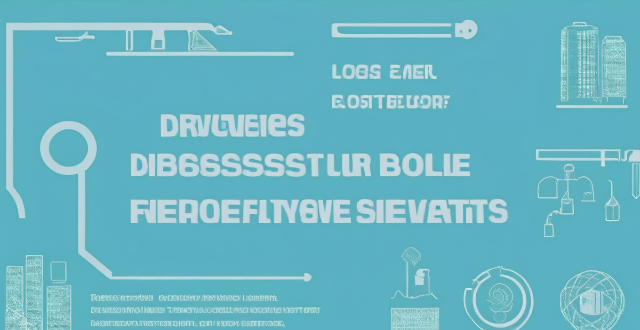
Can you provide examples of successful resource-efficient utilization projects ?
The text discusses several successful resource-efficient utilization projects, including waste-to-energy, solar power, water conservation and recycling, sustainable agriculture, and energy efficiency improvements in buildings. Each project aims to reduce waste, conserve resources, and generate renewable energy. Examples include Singapore's NEWater Plant, CopenHill Waste-to-Energy Plant in Copenhagen, Topaz Solar Farm in California, Tesla's Solar Roof Tiles, Singapore's New Aquarium, Orange County Water District's Groundwater Replenishment System, The Market Garden in Vermont, Fairtrade Coffee Cooperatives, Empire State Building Renovation, and Passive House Design.

What are some innovative ways to recycle electronic waste ?
Innovative Ways to Recycle Electronic Waste Electronic waste, or e-waste, is a significant environmental concern that can be addressed through various innovative recycling methods. These include repurposing old devices, upcycling components, recycling plastics, energy recovery, designing for disassembly, regulation and education, and research and development. By adopting these strategies, we can reduce the amount of e-waste in landfills and lessen its environmental impact.
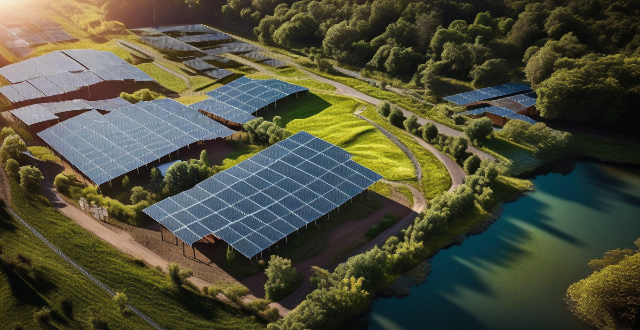
How does solar energy work ?
Solar energy is generated through the use of solar panels containing photovoltaic cells, which convert sunlight into electricity via the photovoltaic effect. This process involves absorbing sunlight, exciting electrons to a higher energy level, generating an electrical current, collecting it, and converting it into usable AC electricity. Solar energy is renewable, sustainable, cost-effective, and environmentally friendly, but its effectiveness can be reduced by weather conditions, and it requires additional equipment for energy storage. Despite high upfront costs, solar energy systems can lead to long-term savings on utility bills.
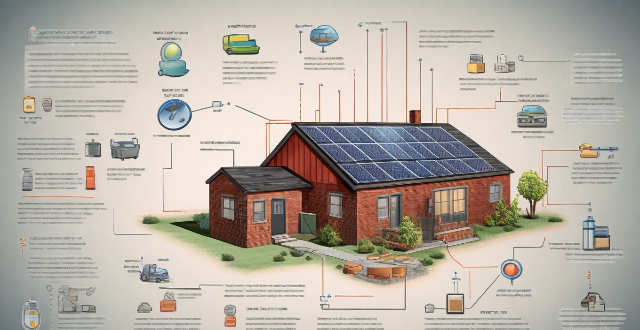
Is it possible to run my entire house on solar power alone ?
The possibility of powering an entire household with solar energy alone is influenced by various factors, including energy consumption habits, geographic location, available roof space, and system efficiency. Financial considerations, net metering policies, and maintenance requirements also play a role in determining the feasibility of such a setup. Homeowners should assess these elements and consider professional consultation to ascertain if their home can run solely on solar power.

How can governments promote waste reduction initiatives among citizens ?
Governments can promote waste reduction initiatives among citizens through education campaigns, incentives, regulations, community involvement, research and development, and public infrastructure investments. These strategies aim to raise awareness, encourage sustainable practices, enforce compliance, engage communities, fund innovative solutions, and establish efficient waste management systems.
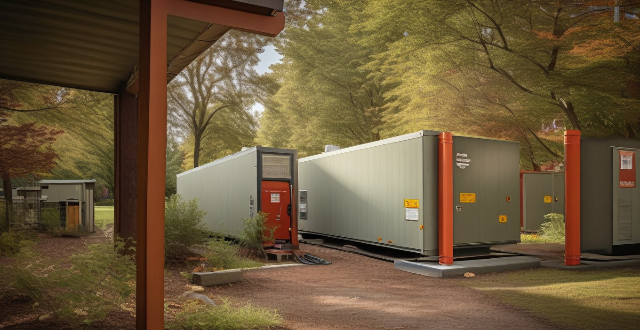
How do solar panels impact electricity bills in the long run ?
Solar panels can significantly reduce electricity bills over the long term by reducing energy consumption, increasing self-sufficiency, and taking advantage of net metering programs. While the initial cost of installation can be high, lower operating costs, federal tax credits, and increased home value can help offset these expenses. Additionally, solar panels offer environmental benefits such as reduced carbon emissions and support for renewable energy infrastructure.

How do clean production technologies help reduce waste and pollution ?
Clean production technologies are vital in reducing waste and pollution. They achieve this through energy efficiency, resource efficiency, improved waste management, pollution control, and a holistic approach to sustainability via life cycle assessment. By implementing these technologies, industries can operate in a more sustainable manner, minimizing their environmental impact.

Are there any government incentives for installing solar panels ?
Governments worldwide offer various incentives to encourage the adoption of solar energy, including tax credits and deductions, rebates, net metering, feed-in tariffs, grants, low-interest loans, green energy certificates, and solar rights laws. These incentives aim to reduce the upfront costs of installing solar panels and make renewable energy more accessible and financially viable for homeowners and businesses. However, eligibility requirements and application processes can vary, so it's essential to consult local professionals or agencies for specific information.

How can businesses implement waste reduction practices in their operations ?
This topic discusses the importance of waste reduction in businesses and provides strategies for implementing sustainable practices. It emphasizes the benefits of conducting a waste audit, adopting eco-friendly packaging, optimizing manufacturing processes, promoting reuse and repair, training employees in waste reduction, and partnering with green suppliers. The goal is to contribute to a more sustainable future while also benefiting financially through cost savings and efficiency gains.
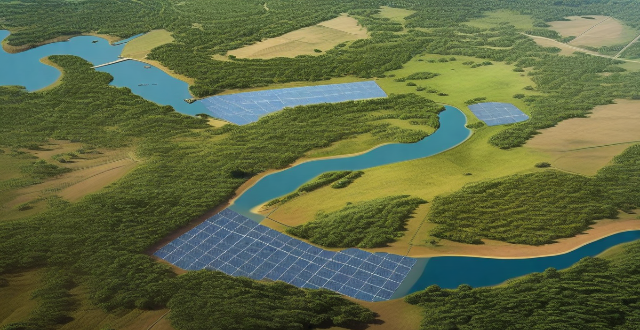
How long do solar panels typically last ?
Solar panels are a sustainable and cost-effective way to generate electricity. However, the lifespan of solar panels is an important factor to consider when making an investment in renewable energy. In this article, we will explore how long solar panels typically last and what factors can affect their lifespan. Solar panels are designed to last for several decades, with most manufacturers offering warranties of 25 years or more. However, the actual lifespan of a solar panel can vary depending on several factors, including the quality of materials used, the installation process, and environmental factors. The quality of the materials used in the manufacturing process can significantly impact the lifespan of a solar panel. Proper installation ensures that the panel is securely mounted and protected from potential damage caused by weather conditions or other external factors. Environmental factors such as temperature, humidity, and exposure to sunlight can also impact the lifespan of a solar panel. To ensure that your solar panels last as long as possible, it is essential to perform regular maintenance checks. This includes keeping the panels clean, checking for damage, and monitoring performance over time. By following proper maintenance practices and monitoring your solar panel's performance over time, you can ensure that your investment in renewable energy pays off in the long run.
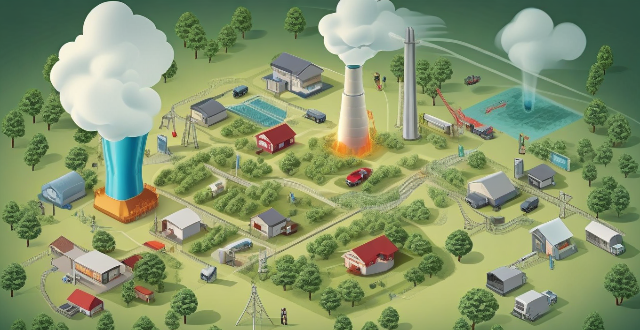
What is the relationship between waste reduction and energy conservation ?
The article discusses the relationship between waste reduction and energy conservation, highlighting their importance in promoting sustainable development. Waste reduction strategies such as recycling, composting, reusing materials, and reducing packaging conserve natural resources, reduce landfill space, and lower greenhouse gas emissions. Energy conservation measures like using energy-efficient appliances, improving insulation, and promoting renewable energy sources lead to lower energy costs, reduced greenhouse gas emissions, and promote sustainable development. The practices are interconnected, with recycling saving energy, composting reducing energy use, reducing packaging saving energy, energy-efficient appliances reducing waste, and promotion of renewable energy sources conserving energy and reducing waste.

What are the benefits of using solar power ?
Solar power is a renewable and sustainable energy source that offers numerous benefits. It can be cost-effective in the long run, environmentally friendly, promotes energy independence, has low maintenance costs, versatile applications, creates jobs, provides government incentives, increases property value, and enhances energy security. As technology advances and awareness grows about renewable energy sources like solar power, its adoption is expected to continue rising worldwide.
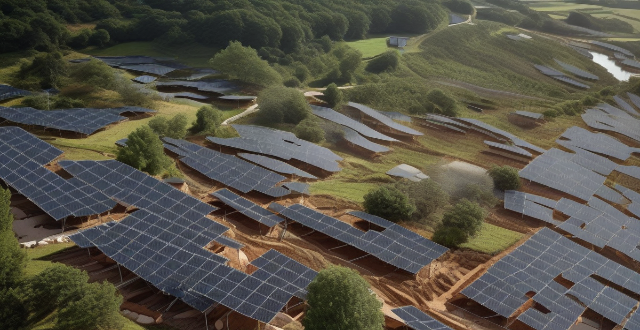
How does wind energy compare to solar energy ?
Wind energy and solar energy are both renewable sources of energy that have gained popularity in recent years. Wind turbines can generate electricity with high efficiency and low maintenance cost, while solar panels have a low initial cost and long lifespan. However, wind turbines can create noise pollution and have limited availability, while solar panels rely on sunlight and require a large amount of land. Both sources have their advantages and disadvantages, making them suitable for different applications.

What are some innovative technologies being used for waste reduction ?
Innovative technologies are being developed to address the critical issue of waste reduction, including anaerobic digestion, recycling and upcycling, composting, incineration with energy recovery, zero waste practices, IoT and smart waste management, circular economy models, and biodegradable and compostable materials. These solutions aim to minimize environmental impact and promote resource conservation.

What are the benefits of waste reduction for the environment ?
Reducing waste is crucial for preserving our planet's health and ensuring a sustainable future. Here are some key benefits of waste reduction for the environment: * Reduced Landfill Space * Conservation of Natural Resources * Decreased Pollution * Climate Change Mitigation * Preservation of Wildlife Habitats * Economic Benefits

Why is it important to recycle electronic waste ?
Recycling electronic waste is crucial for environmental sustainability, public health, and economic benefits. It conserves natural resources, reduces landfill space, prevents toxicity, creates jobs, saves costs, promotes green technology, reduces exposure to toxic substances, protects biodiversity, extends product lifespan, and raises awareness. Understanding the importance of e-waste recycling can lead to informed decisions that contribute to a circular economy and a healthier planet.

How does waste reduction contribute to a circular economy ?
The transition to a circular economy is significantly influenced by waste reduction, which encompasses various strategies like reusing products, recycling materials, and promoting resource efficiency. These practices help in conserving natural resources, reducing pollution, creating economic opportunities, and fostering sustainable consumer behavior. Governments and businesses play a crucial role in driving waste reduction through policy initiatives, technological innovations, and sustainable supply chain management. Community engagement and public awareness further support this shift towards a more sustainable economic model.
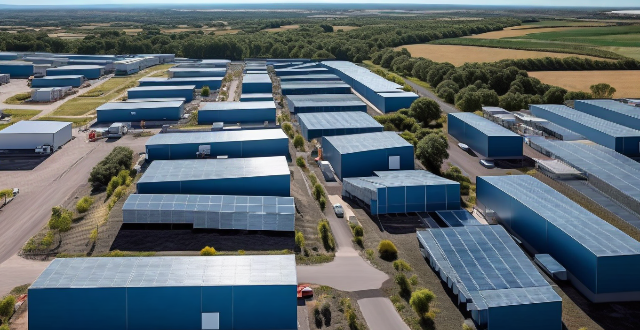
Can you explain the difference between photovoltaic and solar thermal energy ?
Solar energy harnesses the power of the sun to generate electricity or heat. Two major categories are photovoltaic (PV) and solar thermal systems, which differ in their conversion processes, applications, storage capabilities, efficiencies, and costs. PV systems convert sunlight directly into electricity using semiconductor materials like silicon, while solar thermal systems capture the sun's heat to warm a fluid, usually water or air, which then provides heat or generates electricity. PV is mainly used for generating electricity, and solar thermal is used for both heating and electricity generation. Solar thermal systems can more readily incorporate thermal storage solutions, while PV systems typically require battery storage for off-grid applications. The cost and affordability depend on the specific application and location, with PV becoming increasingly competitive in recent years.

Can circular economy policies help reduce waste and pollution ?
Circular economy policies can significantly reduce waste and pollution by promoting reuse, recycling, and cleaner production methods. These policies incentivize businesses to design products that are easier to maintain and recycle, support sustainable business models like leasing and Product as a Service (PaaS), and encourage consumers to make environmentally friendly choices. Through such measures, the need for new raw materials decreases, energy consumption is reduced, and waste is diverted from landfills, all of which contribute to lower emissions and a cleaner environment.
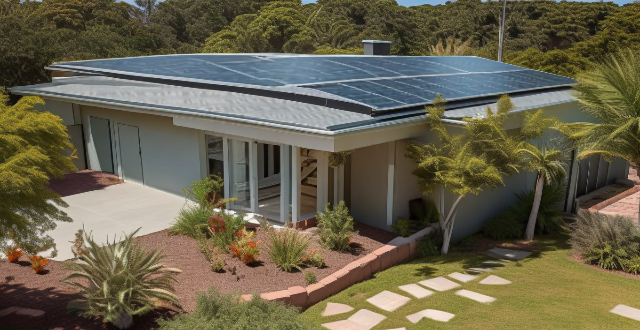
How much does it cost to install a solar panel system ?
The cost of installing a solar panel system varies depending on the size, type of panels used, and installation location. Small residential systems typically range from $15,000 to $25,000 before tax credits or incentives, while medium to large residential systems can cost between $25,000 to $40,000. Commercial systems can vary greatly in size and cost. Monocrystalline silicon panels are the most efficient and expensive option, while thin-film solar panels are the least expensive but also less efficient. Rooftop installations are generally more expensive than ground-mounted installations. Additional costs include inverters, batteries, and installation fees. It is important to consult with a reputable solar installer for an accurate estimate based on specific needs and circumstances.
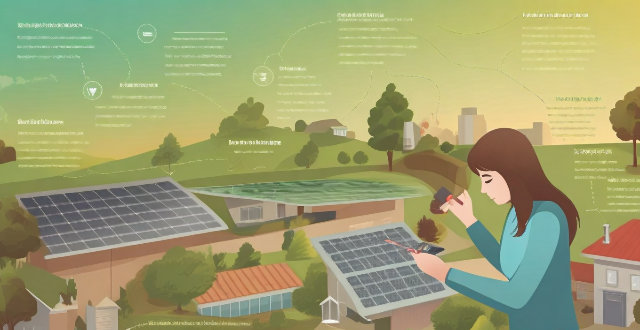
How can I maintain and clean my solar panels for optimal performance ?
The article discusses the importance of maintaining and cleaning solar panels to ensure their optimal performance. It provides a detailed guide on how to keep solar panels in top condition through regular inspection, cleaning, preventative measures, and safety precautions. The guide includes steps for visual inspection, checking for shading, monitoring production levels, dry and wet cleaning methods, using bird repellents and gutter guards, and routine maintenance. It also emphasizes the importance of wearing appropriate safety gear and taking precautions when working on or around solar panels. By following these steps, homeowners can extend the lifespan of their solar panels and maintain their efficiency over time.
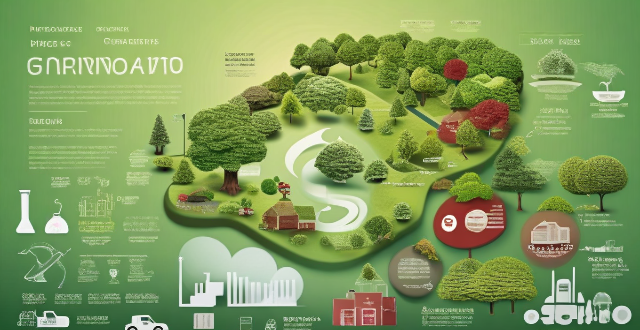
What is the impact of waste reduction on global climate change ?
This text discusses the importance of waste reduction in mitigating global climate change, highlighting how it can reduce greenhouse gas emissions, conserve natural resources, and protect ecosystems and biodiversity. It suggests ways to reduce waste such as reducing consumption, reusing items, recycling materials, composting organic waste, and supporting sustainable practices.

How does solar power work and is it a viable option for homes ?
Solar power is generated through solar panels made of silicon cells that convert sunlight into direct current (DC) electricity. This process involves absorption of light, conversion to DC, conversion to alternating current (AC), and distribution throughout a home or business. Solar power is a viable option for homes due to its renewable nature, cost savings, environmental benefits, and government incentives. However, weather conditions, storage options, and upfront costs should also be considered before deciding if solar power is the right choice for your home.

What are the advantages of using solar panels for residential and commercial purposes ?
Solar panels offer reduced energy costs, environmental benefits, increased property value, energy independence, low maintenance, and government incentives for residential and commercial use.
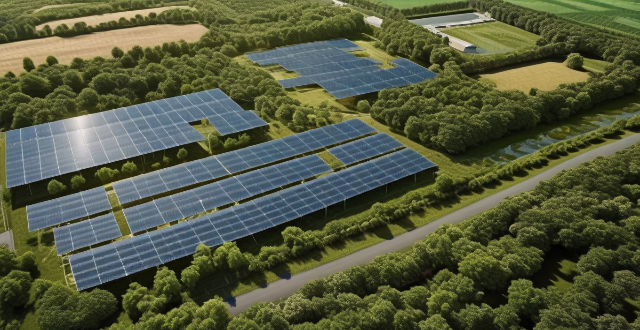
How does solar power generation work and is it a viable option for residential use ?
Solar power generation involves converting sunlight into electricity using solar panels, which are made up of photovoltaic cells. The process includes generating electricity, converting it from DC to AC, net metering, and battery storage. Solar power is a viable option for residential use due to its cost-effectiveness, energy independence, environmental benefits, increased property value, and technological advancements.

What role does waste reduction play in sustainable development ?
The article discusses the importance of waste reduction in sustainable development. It highlights the environmental, economic, and social benefits of waste reduction, including conservation of natural resources, protection of ecosystems, climate change mitigation, cost savings, job creation, innovation and efficiency, public health, education and awareness, and community engagement. The article emphasizes that waste reduction is an essential component of sustainable development and encourages individuals, businesses, and governments to take action to reduce waste.

How do cultural factors influence waste reduction practices ?
The text provides an overview of how cultural factors influence waste reduction practices, highlighting the role of cultural attitudes, social norms, education, religious beliefs, economic conditions, and technological advancements in shaping waste management behaviors. It emphasizes that respect for resources, consumerism vs. conservatism, composting traditions, public awareness campaigns, community cleanliness standards, taboos around waste, environmental education, family values, role models, stewardship principles, reincarnation beliefs, interconnectedness philosophies, affordability of disposable products, recycling costs, government incentives, access to technology, digital awareness campaigns, and innovative product design are all aspects of culture that can significantly impact waste reduction efforts. By understanding these cultural dynamics, more effective strategies for sustainable living can be developed globally.
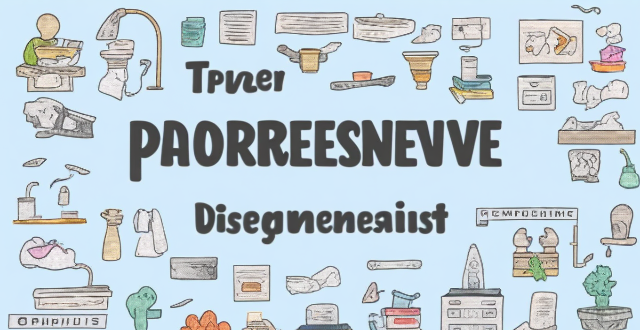
How do I properly dispose of electronic waste ?
The text provides a comprehensive guide to the proper disposal of electronic waste (e-waste), which is crucial for environmental preservation and public health. The guide explains what e-waste is, why it's a problem, and outlines steps for responsible e-waste management, including reducing consumption, reusing devices, recycling them through various methods, disposing of hazardous materials responsibly, and raising awareness about the issue. By following these steps—reduce, reuse, recycle, responsibly dispose, and raise awareness—individuals and communities can significantly mitigate the negative impacts of e-waste and make a difference.